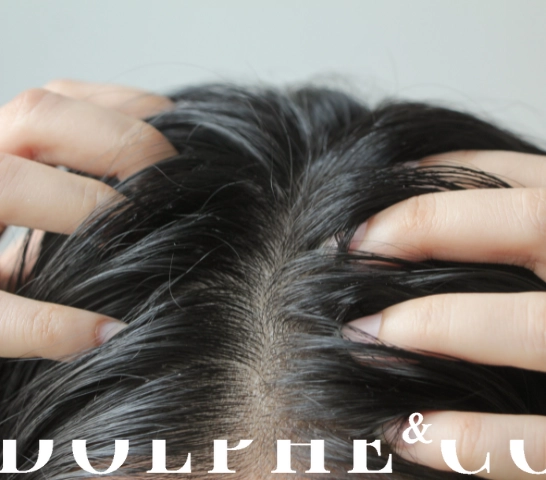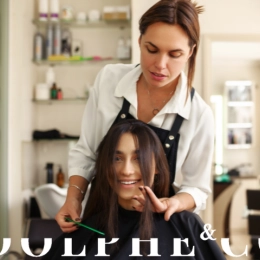Sensitive scalp, hair loss, breakage… As a hairdresser, you're on the front line when it comes to noticing your clients' hair concerns and answering their questions. Beyond genetic issues, one of the main causes behind these problems is nutrition—specifically, micronutrition. Often overlooked, this key factor is essential for achieving vibrant, healthy hair. In this blog post, we’ll explore what micronutrition is, how it supports scalp health, and how you can turn this knowledge into a real asset in your salon.
Understanding the Role of Micronutrition for the Scalp
What is Micronutrition?
Micronutrition is the branch of nutrition that focuses on micronutrients—one of the two main categories of nutrients, alongside macronutrients (proteins, fats, and carbohydrates). Micronutrients include vitamins, minerals, trace elements, and essential fatty acids. Though required in smaller amounts than macronutrients, they are no less essential for proper body function and healthy hair.
Why Does the Scalp Need Specific Micronutrients?
The scalp is the foundation of our hair—it’s where the hair follicles are located, responsible for hair growth. For the hair to follow a healthy life cycle, a sufficient supply of micronutrients is crucial. A lack of these nutrients—commonly known as deficiencies—can cause scalp dysfunctions such as oxidative stress, excess sebum, dryness, premature cell ageing, and even hair loss.
Key Nutrients for a Healthy Scalp
Now that we understand the importance of micronutrients for a healthy scalp, let’s take a closer look at the essential nutrients for strong, radiant hair.
Essential Vitamins
Vitamin A: Found in carrots and sweet potatoes, it regulates sebum production and maintains scalp hydration.
Vitamin B (Biotin, B9, B12): Promotes hair growth and prevents hair loss. Almonds and eggs are excellent sources.
Vitamin C: A powerful antioxidant, it supports collagen production and iron absorption. Citrus fruits and bell peppers are rich in it.
Vitamin D: Naturally sourced from sunlight and oily fish, it activates hair follicles and strengthens hair fibres.
Essential Minerals and Trace Elements
Iron: Helps prevent hair loss by improving blood flow to the scalp. Found in red meat and legumes.
Zinc: Regulates sebum production and supports cell renewal. Shellfish and nuts are great sources.
Selenium: Protects the scalp from oxidative stress and external aggressions. Certain mushrooms are rich in selenium.
Fatty Acids (Omega-3 and Omega-6)
They deeply hydrate the scalp and strengthen the hair fibre. Found in oily fish, flaxseed oil, and chia seeds.
To provide your clients with all these essential nutrients, you can also recommend targeted supplements. Rodolphe&Co offers Hydra-Hair supplements, a unique formula that supports hair fibres, the scalp, skin, and nails.
Identifying Visible Signs of Nutritional Deficiencies on Hair and Scalp
How to Spot a Nutrient Deficiency in a Client
Use a simple questionnaire about your client’s dietary habits and lifestyle. It’s important to consider their overall health, as certain medical conditions or treatments can affect scalp health.
Here are the main visible signs of deficiencies that can appear on the hair and scalp:
| Excessive hair loss | Iron or zinc deficiency |
| Dry, irritated scalp or dandruff | Essential fatty acid deficiency |
| Dull and brittle hair | Vitamin B complex or protein deficiency |
| Oily roots and dry ends | Imbalance linked to zinc and vitamin B6 deficiency |
Integrating Micronutrition into Salon Consultations
How to Educate Clients Without Being a Nutritionist
Offer a holistic hair care approach: targeted shampoos + balanced diet. Explain the effects of nutrient deficiencies in simple, accessible language. Suggest a personalised routine based on the scalp’s needs.
Highlight Natural and Nutrient-Rich Products
Promote haircare enriched with essential nutrients to amplify the effects of micronutrition. Don’t hesitate to recommend Hydra-Hair supplements by Rodolphe&Co, which deliver concentrated nutrients to improve scalp health. These products are excellent companions to external treatments for optimal results.
Are Micronutrition and Supplements Effective Solutions?
During periods of stress, hormonal changes, or confirmed deficiencies, supplementation is highly recommended to restore the body’s nutrient balance.
However, it's important to note that supplements are not substitutes for a healthy, varied diet. They should complement—not replace—a balanced diet and healthy lifestyle. Always follow the usage guidelines and check for contraindications.
The Impact of Stress and Lifestyle on the Scalp
In addition to diet, stress and poor lifestyle habits can negatively impact scalp health. Chronic stress increases cortisol levels, which may lead to hair loss and worsen scalp inflammation.
To counter this, encourage relaxation practices such as meditation, yoga, or deep breathing. Quality sleep and daily hydration are also key to preventing scalp imbalances.
Towards a Healthier Scalp: Adopt the Right Habits
A healthy scalp reflects proper nutrition and a well-rounded care routine. Daily habits—like using nutrient-rich haircare and eating a balanced diet—are essential to avoid inflammation, itching, and hair loss.
By incorporating micronutrition into your expertise as a hairdresser, you offer your clients a complete and caring approach to healthier hair. Don’t wait to make scalp nutrition a key asset in your salon !





